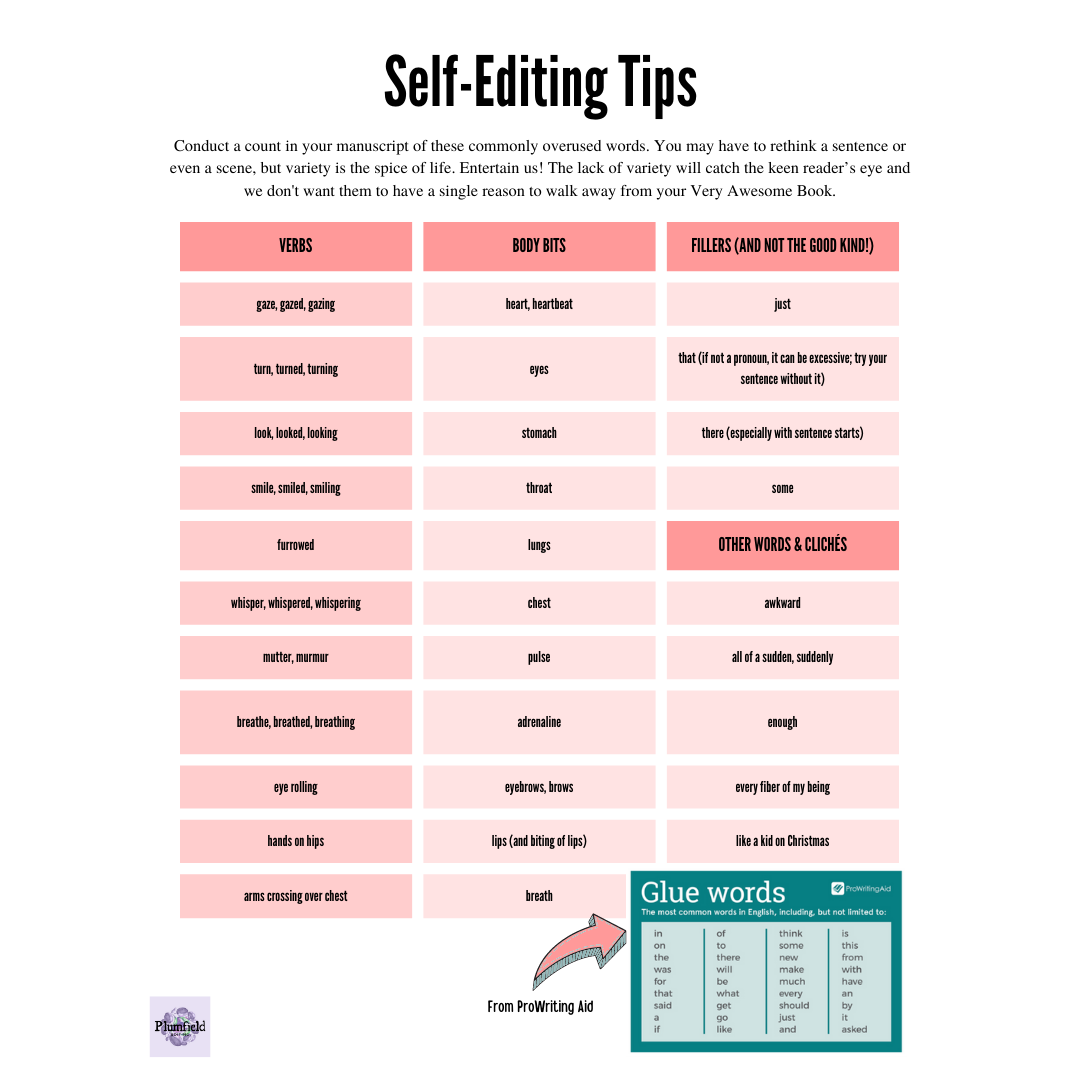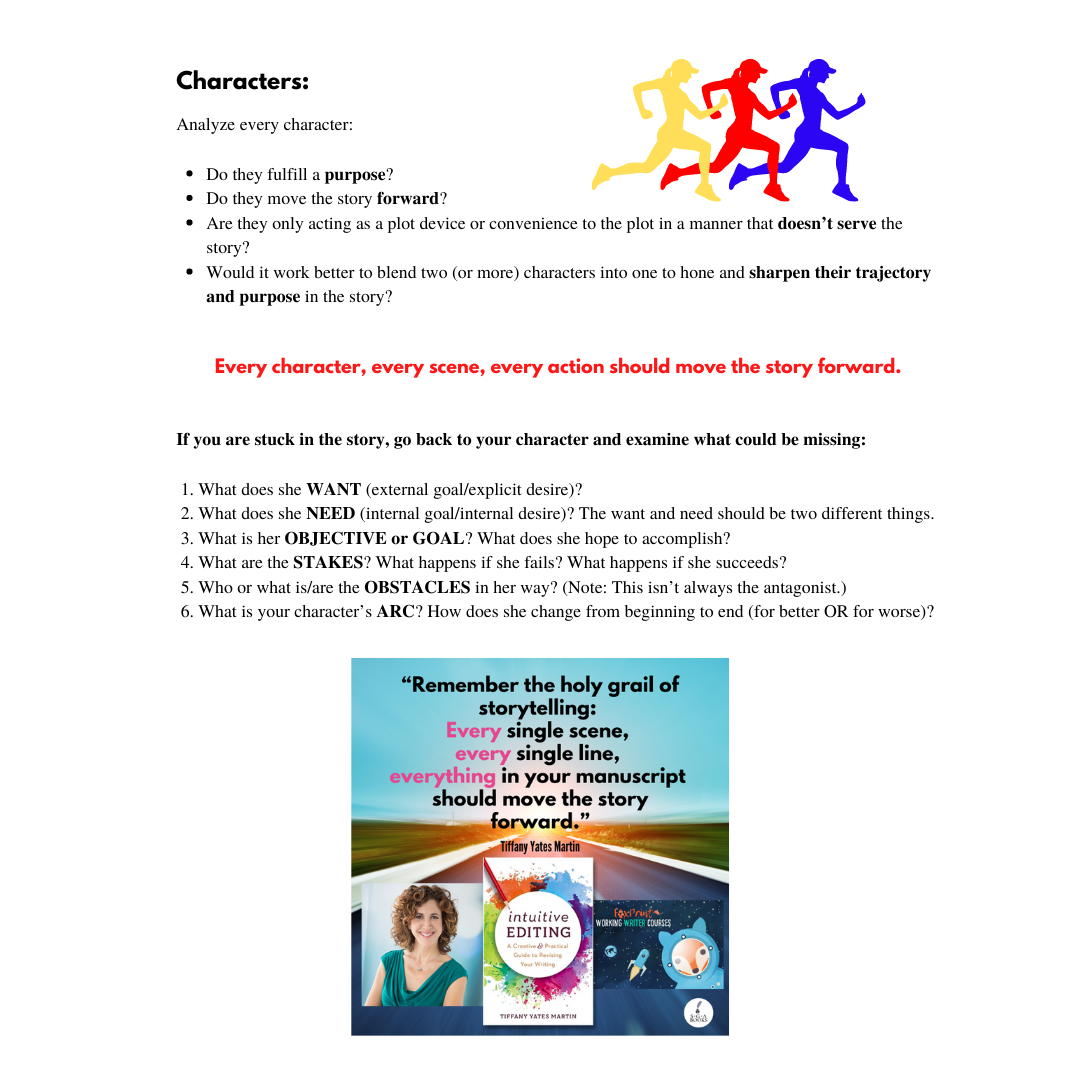Self-editing tips!
Ahoy, fellow wordsmiths! So, your latest draft is done? Congratulations! Woohoo! Pop the prosecco!
But before you send your book baby to your beta readers, editor, or agent, definitely give the manuscript some time to cool off. Think of it like that amazing apple pie Gramma used to make, the kind with the cinnamon on top, but she wouldn’t let you eat it until it had cooled. That’s what you need to do with your book—let it cool! When you’ve had a little distance, dive back in and tackle some of these easy fixes on your own, before sending it to early readers, your editor (whether that’s an editor you’ve hired or the acquisitions editor at your publishing house), or your agent.
Best foot forward, always.
Among the things I look for when editing a project are word overuse, heavy reliance on adverbs, too many dialogue tags, and specialized, world-specific spellings. Here are some useful tips that are easy to fix on your own (your beta readers, agent, and/or editor will thank you!):
Do a search in your manuscript for the following words: just, that, gaze, gasp, voice, tone, eyes, heart, stomach, throat, chest, breathe, look, back, soft, low, know, feel, felt, hear/heard, stare, staring, stared, glared. Also look for overuse of physical expressions: eye rolling, arms crossing, sighing, hands on hips. That sort of thing. Use the search-and-highlight function in Word to see how many times these words show up in your manuscript. If it’s too many, CUT.
Look for adverbs (especially “suddenly” and “immediately”). You don’t need many. Stephen King is noted for saying, “The road to hell is paved with adverbs.” I’m not quite that pedantic, but less is more.
Remove adverbs from dialogue tags. Example: “Make sure you lock the door on your way out,” she said softly. <— Remove the adverb “softly.” Let the dialogue do the heavy lifting.
Do a search for double spaces and then replace with a single space. The contemporary rule is a single space after closing punctuation. We no longer need that extra space as books are not manually typeset one letter at a time. Instead, this process is accomplished via digital technology.
If you have a verbal tic (a word you like and use more often than you should—mine is “atop”), search and destroy.
Rely as much as possible on “say/says/said.” You don’t need to muddy your prose with noisy dialogue tags via “exclaimed,” “declared,” “replied,” “remarked,” “retorted,” etc. Sure, sometimes this is necessary (he hissed! she yelled! he cried!), but everything in moderation, dear writer. Benjamin Dreyer’s book, Dreyer’s English, has a fantastic passage on flexibility with the use of “said.”
Search for ALL instances of “began” and “start.” Example: She began to walk across the room. Recast this sentence: She walked across the room.
Do a search and replace to turn straight quotes into curly quotes.
Run a spell-check on your manuscript.
If your story is filled with unique words and names (particularly true in fantasy), please make a list of your preferred spellings to provide to your editor. This will become part of your style sheet and assists with consistency/continuity throughout.
Do not rely solely on programs such as Grammarly and ProWriting Aid to fix your manuscript. These programs can be very helpful but they are far from perfect and can, in fact, introduce new errors and turn your MS into a word salad.



